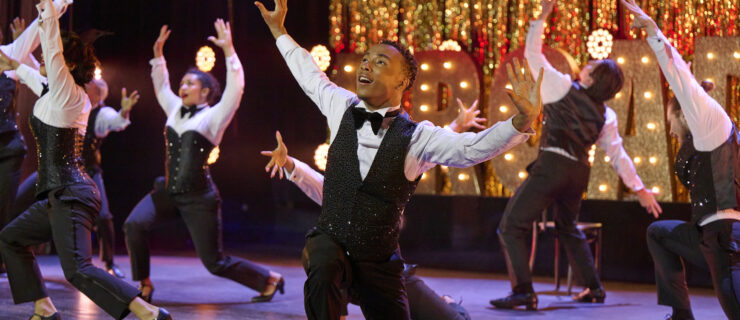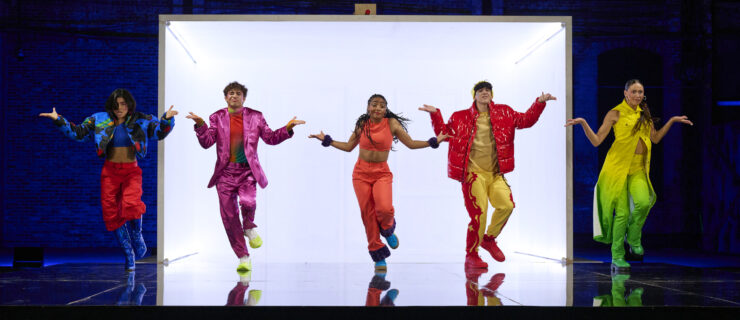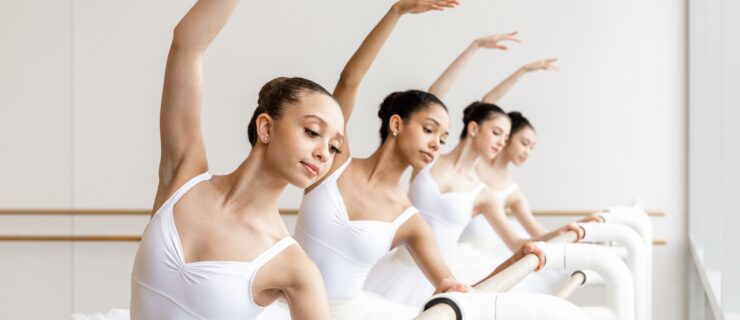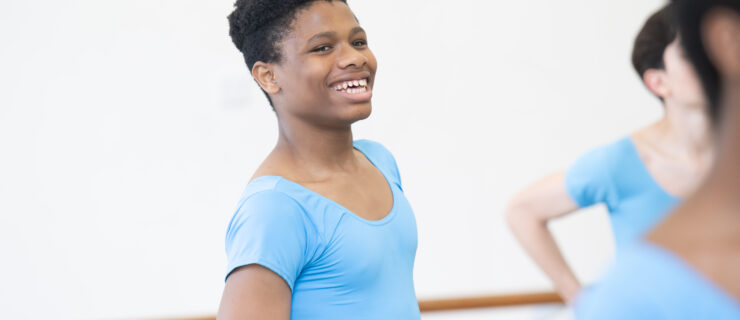Judges Panel

When competition season rolls around, it’s inevitable that you’ll get a bit stressed out. Your brain is jam-packed with worries, from remembering to pack (and put on!) all of your accessories to making sure you spray down your wispys. But the things you’re freaking out about may not be the things that matter to the people you’re hoping to impress.
Dance Spirit
talked to seven judges to get the scoop on what you should worry about (your technique) and what doesn’t matter (whether you polished your tap shoes). So put your concerns on hold for a minute and read on to see what the judges really value.
You think…
“I forgot my hairpiece! We’re going to lose points for sure.”
But really… Ashley Barnett of L.A. DanceMagic says any type of costume inconsistency in a group routine is distracting and takes away from the overall impression of the piece. But very few judges will lower your score for a minor appearance flaw. “I don’t want the whole group to be knocked down on a score because one person forgot a rhinestone choker,” says Lisa White, a judge with Starpower.
You think…
“I messed up in a group routine. If we don’t get a good score, it’s my fault.”
But really… Judges rarely mark down for individual performance flubs, especially if you recover well. “Everybody makes mistakes,” says Bob Woodard, who judges for PrimeTime and Showbiz. “The judges only get upset if you make a mistake, then fall apart. Just keep going, keep moving. You don’t have to be perfect all the time; what matters is how you react.”
You think…
“The judges love eye contact.”
But really… The judges we spoke with said getting stared down by dancers actually makes them kind of uncomfortable. In general, “Keep your focus up and out,” advises White. “But it’s nice if you connect with us for just a second or two.”
You think…
“The number that’s scheduled to go on before mine is good—I’ll look bad if I go right after it!”
But really… It doesn’t matter when you go on. “We’re judging you based on you, and it doesn’t matter who goes before or after you,” Woodard says.
Do entrances and exits matter?
To some extent. Though the judges may not score your entrance and exit, they do pay attention. “I’m watching you as soon as you come onstage,” says Lindsey Glick of MOVE Productions. Ray Leeper the executive director of NUVO adds that “everyone takes into account first and last impressions.”
You think…
“I hate the convention portion of the competition. I just want to perform. I’ll stand off to the side with my friends until class is over.”
But really… Poor participation in class might affect your competition score, depending on the judge. “If I see a kid screwing around in class, and then see them dancing as hard as they can at the competition, I can’t help being biased,” says Mandy Moore of JUMP. While the judges try to be open-minded, they will remember bad attitudes. “If two routines get the same score and you have to break the tie, you’re likely to pick the piece danced by the kids with good attitudes,” Woodard says.
You think…
“The judges already scored my routine—now I can change into my pajamas for awards.”
But really… Some judges frown upon dancers who don’t look polished for the duration of the competition. “Someone has taken the time to judge you and give you an award, and you should look respectable to receive that award,” Moore says. “Remember that you’re representing yourself and your studio.” So what’s appropriate awards apparel? “I like when dancers wear their studio attire to show team spirit,” Barnett says.
To lip sync or not to lip sync?
Not to lip sync! None of the judges we talked to like when dancers mouth along with the lyrics during a performance. “Dance is about speaking with your body,” Leeper says. “Lip syncing is unnecessary.”
You think…
“The judges are here to rip me apart.”
But really… They want you to be great! “We’re on your side rooting for you,” says NUVO’s Ray Leeper. Adds Robert Bianca of Showstopper, “Everything we say is to help you improve.”
At the end of the day…
Your score is a reflection of someone’s opinion on that particular day. “Dance is subjective,” says Bianca. “Each judge will look at each routine a different way.” Adds Moore, “Competition doesn’t determine the success you’re going to have or what kind of dancer you’re going to be. Don’t let it define who you are as a dancer.”
Use competition as a chance to grow as both a performer and as a person. “Dance because you believe in what you’re doing,” Bianca says. “There might be someone who can do more pirouettes than you can, or who has higher extension than you do. But no one can be more you than you. So show us you.”
Live it up!
Every weekend, competition judges sit through hundreds of routines. If you want them to remember your performance, you have to show that you’re enjoying yourself onstage. “You can do 12 pirouettes in a row, but if I don’t see your personality, I’m not into it,” says judge Lindsey Glick. “If you can whip out a clean double with confidence and you’re living it up onstage, I love it.”
A Few of Their Least Favorite Things
The judges reveal their biggest pet peeves.
“I can’t stand numbers that are under-rehearsed and aren’t clean. We want everything to be fine-tuned. Pay attention to the details.” —Ray Leeper
“The worst thing you can do is run offstage. Unless you’re having a major costume malfunction, keep going.” —Bob Woodard
“I’m tired of seeing the ‘crotchement,’ the kick to the front that everyone is doing now—it’s so awkward!” —Lindsey Glick
“Dancers shouldn’t run into each other onstage. Fix traffic problems in the studio.” —Robert Bianca



